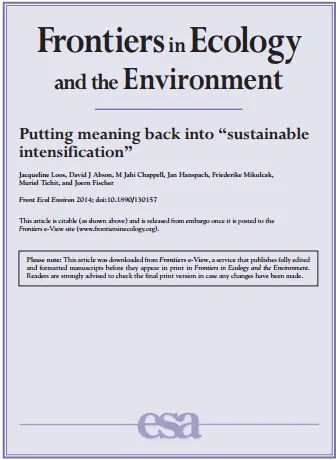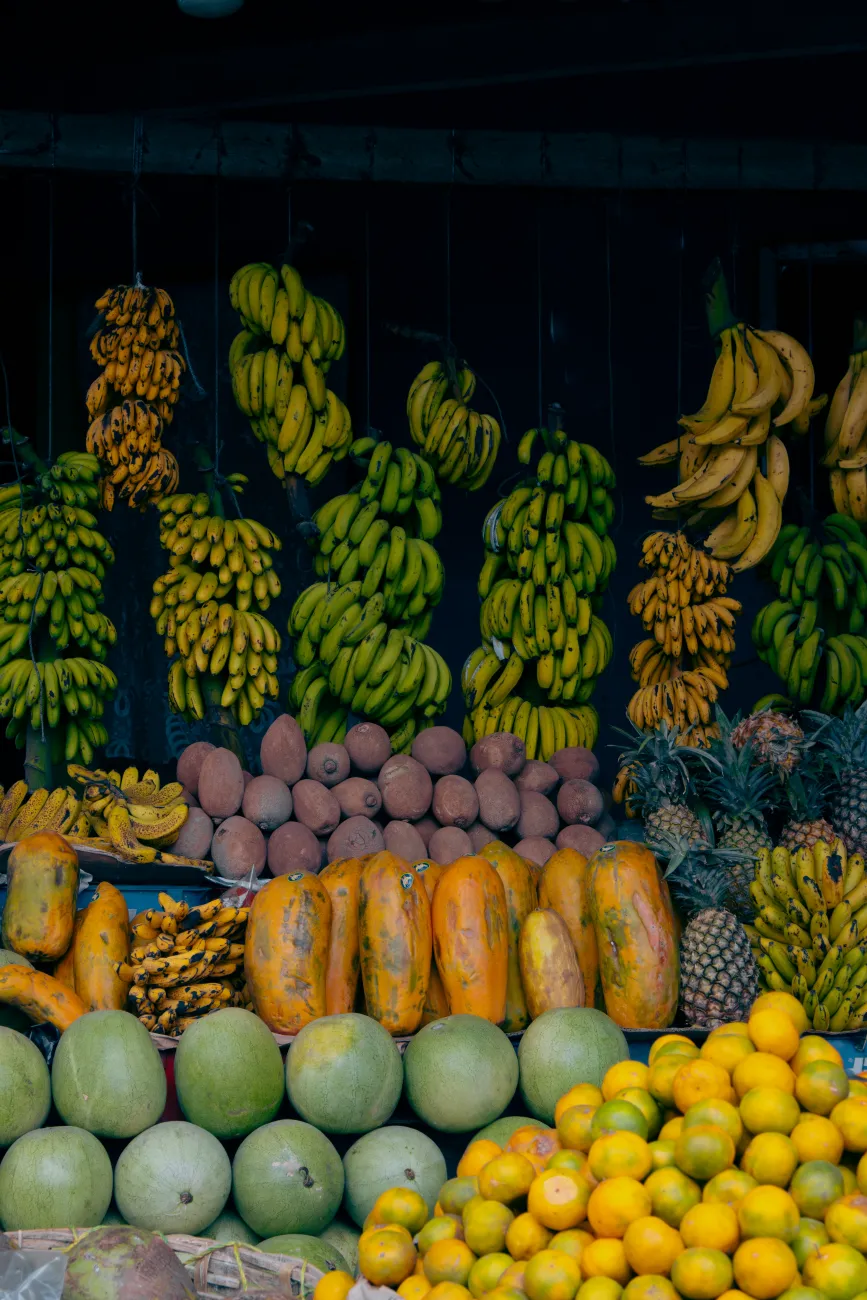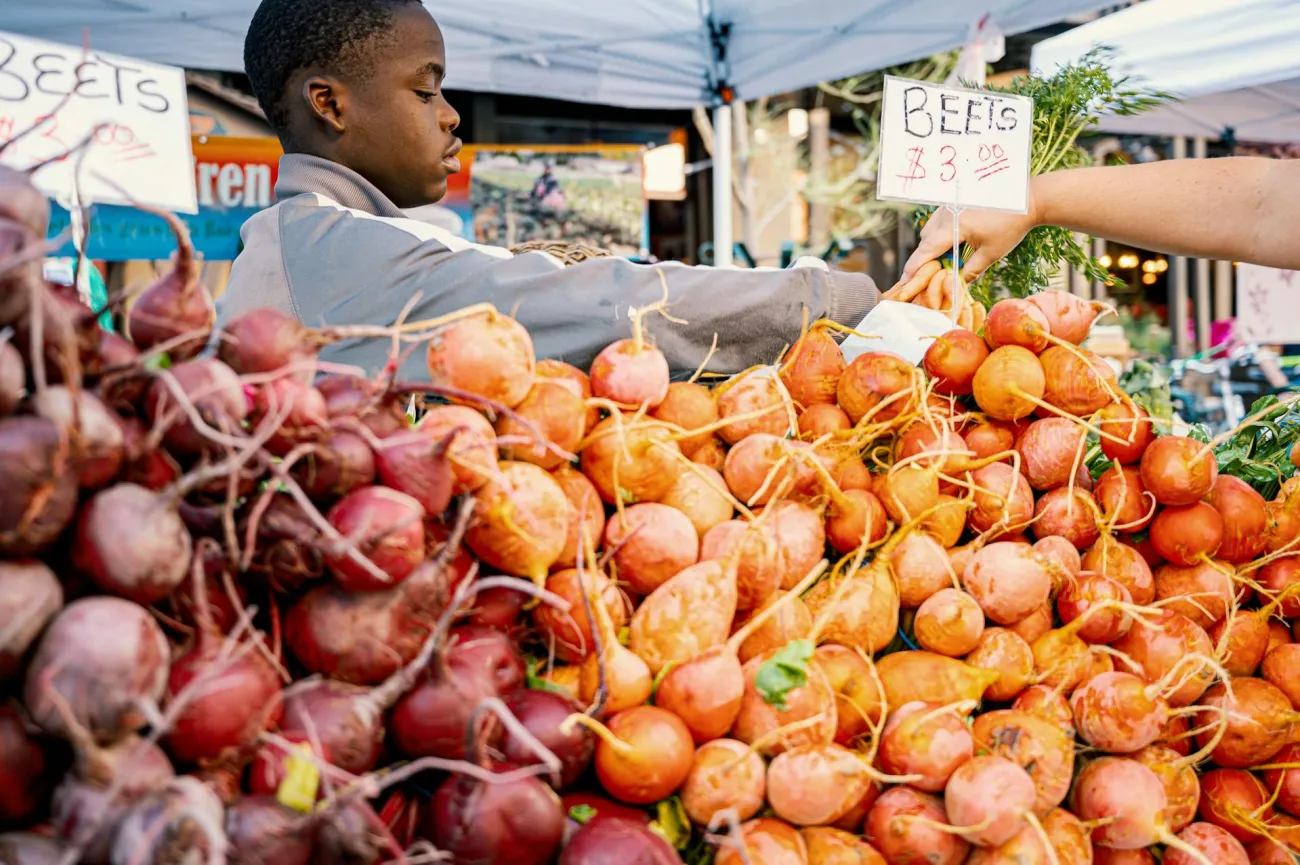This paper critiques the concept of sustainable intensification as follows: “Though often lauded by scientists and policy makers alike as a panacea to the mass environmental degradation that accompanies typical food production processes, the authors find that ‘sustainable intensification’ is actually highly unsustainable as it fails to consider the long run social, economic and ecological consequences of intensified production. Thus the authors aim to redefine the scope of the discourse, moving beyond simple calls for increased production capacities to instead enmesh food security within a more holistic approach to development which requires better governance, more empowerment, and greater access and fairer distribution of food within more resilient food systems. Ultimately, sustainable intensification is rendered worthless if those facing dire food insecurity remain unable to access the yields of increasing production.“

Along the way the paper criticises the productionism apparently inherent in recent papers and reports on sustainable intensification by the FCRN’s Tara Garnett, her colleague Charles Godfray and and other co-authors (see here, here and here). This came as a bit of a surprise since the whole purpose of these papers was to redefine the SI concept in ways that distance it firmly from a productionist agenda; moreover the productionist label doesn’t fit particularly well with the strong emphasis that Tara has placed, via the FCRN and elsewhere, to move away from the ‘more food will solve our problems’ agenda and to focus on need to address consumption– see for example here, here , here, here, here , here and here.) It seems that the problem lies not so much with the principles underpinning SI that Tara, Charles and co-authors set out, but the name itself – the negative baggage that the word ‘intensification’ carries around may be simply too heavy (other reports highlighted in this week’s newsletter – see The Sustainable Intensification of European Agriculture: A Review Sponsored by the RISE Foundation – suggesting that this may be the case). Comments and thoughts much appreciated - use the comments box below this story on our website. You will need to be logged in to do so, and if you have forgot your log-in details get in touch and we will sort you out.
Abstract
In light of human population growth, global food security is an escalating concern. To meet increasing demand for food, leading scientists have called for “sustainable intensification”, defined as the process of enhancing agricultural yields with minimal environmental impact and without expanding the existing agricultural land base. We argue that this definition is inadequate to merit the term “sustainable”, because it lacks engagement with established principles that are central to sustainability. Sustainable intensification is likely to fail in improving food security if it continues to focus narrowly on food production ahead of other equally more important variables that influence food security. Sustainable solutions for food security must be holistic and must address issues such as food accessibility. Wider consideration of issues related to equitable distribution of food and individual empowerment in the intensification decision process (distributional and procedural justice) is needed to put meaning back into the term “sustainable intensification”.
Citation
Loos, J., Abson, D. J., Chappell, M. J., Hanspach, J., Mikulcak, F., Tichit, M., & Fischer, J. “Putting back meaning into ‘sustainable intensification’” Frontiers in Ecology and the Environment 2014.
Read the full paper here. Find more information on sustainable intensification; see FCRN-Oxford Martin report on sustainable intensification here. There is also the Science article Sustainable intensification in agriculture: premises and policies followed by Expert comments on sustainable intensification in agriculture.




Comments (0)